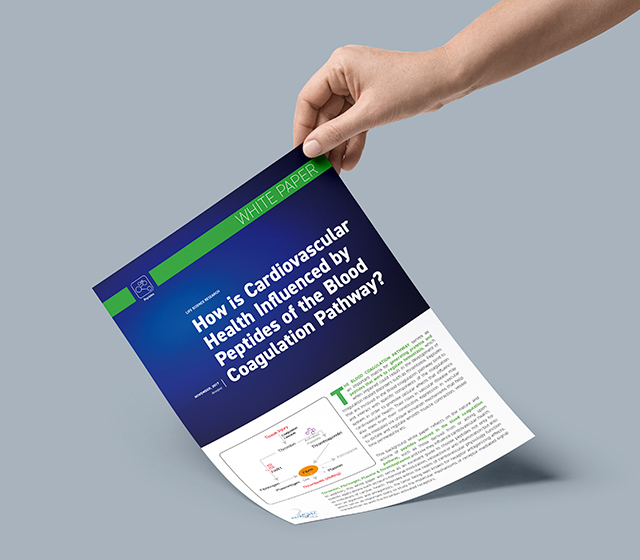Abstract
The blood coagulation pathway serves as an important matrix for generating proteins and peptides that work to regulate hemostasis, which when impaired could result in the development of coagulation related disorders such as thrombosis.
Peptides that are involved in the blood coagulation pathway bind to and interact with specific components of the coagulation system in order to promote cellular effects that influence cardiovascular health. Their roles in vascular disease may also stem from their constitutive expression in vascular cells mediated via unique activation mechanisms that help to dictate and regulate smooth muscle contraction, vessel tone permeability etc.
This background white paper reflects on the nature and actions of peptides involved in the blood coagulation pathway, such as those derived from or acting upon Thrombin, Fibrinogen, Plasmin & Thromboplasmin and how they influence cardiovascular health.
In addition, this white paper will serve as an excellent guide to choose peptides not only for specific applications such as neuro-hormonal modulation, vasoactive or anti inflammation but also as indicators of cardiac health. Peptides within the realm of cardiovascular physiology function also as agonists and antagonists, the latter being well known for receptor antagonizing effects, which serve as important tools to study the molecular mechanisms of receptor-mediated signal transduction as with the thrombin activated receptors.
